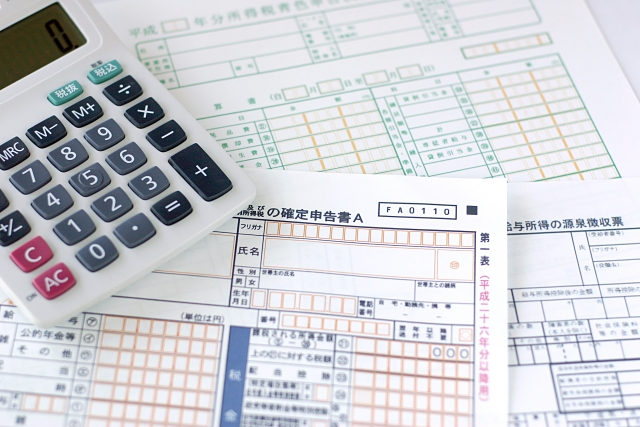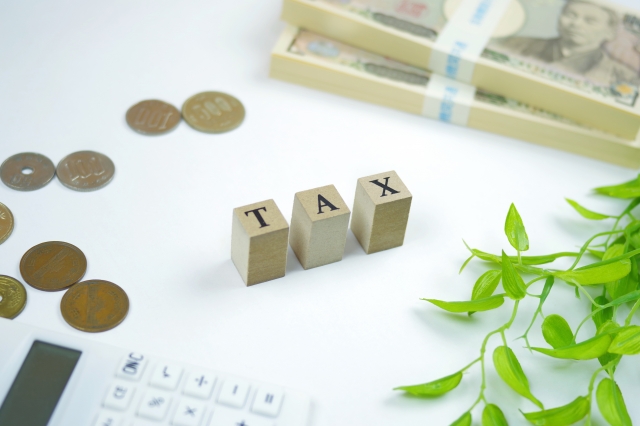1. Tax Payer Classification
2. Income Tax Rate
3. Resident Tax
4. Tax Return
– How to file final tax return
– Deduction problems for foreign workers
It is always difficult to understand the system of tax even in your home country. However, you must understand and operate properly regarding of it.
In this article, we will show you an overview of Japanese tax system focusing on How it works for people from abroad.
1. Tax Payer Classification
In Japan, the Income Tax Act divides the range of taxable income into two categories: resident and non-resident. Each criterion is as stipulated in the Income Tax Act. An individual who has an address in Japan and usually needs to have a residence for one year or more continuously is called a “resident”, and a person presumed to have no residence (an individual other than a resident) is called a “non-resident”. Residents are presumed to have an address or residence, even if they live in a hotel or acquaintance’s residence, as long as they have a personal life base or where they actually live.
Therefore, “non-resident” indicates a person who is staying on a start-up visa, applying for a working holiday visa, short term (for 3months, 6months or 1year, etc.) student or trainee. Others are considered “resident”. This may not be the case, so please check for details.
2. Income Tax Rate
The difference between “resident” and “non-resident” tax is whether foreign source income is taxable or not. Both situations are taxable subject to tax on domestic source income. The resident’s income tax is collected in the same way as Japanese according to the following calculation table.
<Income tax Calculating table>
| Taxable Income Amount * | Rate | Deduction |
|---|---|---|
| 1,950,000yen or less | 5% | ¥0 – |
| Over 1,950,000yen ~ 3,300,000yen or less | 10% | ¥97,500 – |
| Over 3,300,000yen ~ 6,950,000yen or less | 20% | ¥427,500 – |
| Over 6,950,000yen ~ 9,000,000yen or less | 23% | ¥636,000 – |
| Over 9,000,000yen ~ 18,000,000yen or less | 33% | ¥1,536,000 – |
| Over 18,000,000yen ~ 40,000,000yen or less | 40% | ¥2,796,000 – |
| Over 40,000,000yen | 45% | ¥4,796,000 – |
* The amount after rounding down fractional amounts less than 1,000 yen
The tax rate for non-resident employment income is 20.42%. You cannot file a final tax return. In addition, if a tax treaty has been concluded, the above tax rate may be exempted or reduced according to the tax treaty.
3. Resident Tax
The resident tax is paid the year after the income is earned. Foreigners are also required to pay resident tax. If you receive a residence permit of more than three months and have an address in Japan on January 1st, foreigners will be obliged to pay resident tax. However, residents of the two countries may be exempt from resident tax in one country. For the details, please check the following table.
[ Whether or not a tax treaty applies for residence tax]
| Applicable countries | Argentina, UK, Italy, Austria, Netherlands, Korea, Saudi Arabia, Singapore, Sweden, China, Denmark, Germany, Turkey, France, Vietnam, Belgium, Hong Kong, Malaysia, Russia, etc. |
| Non-Applicable countries | United States, India, Indonesia, Australia, Canada, Colombia, Spain, Thailand, New Zealand, Philippines, Brazil, etc. |
It is necessary to report personal resident tax exemption to meet the tax treaty requirements and receive a tax exemption. (* You cannot be exempt from personal resident tax just by applying for income tax. To get exempt from personal resident tax, you need to submit a notification form to the municipalities.) Many of the applicants are professors, international students, business trainees, etc.
■ How to apply for tax treaty exemption for personal residence tax
If you intend to receive the exemption from personal residence tax, the necessary documents must be sent to the municipal government until March 15th (the next open day if the day is closed) of the year following the tax treaty-related income (the relevant year).
Exemptions cannot be obtained if they are not submitted by the deadline. About the necessary documents, please request and confirm with the tax office in your area. This procedure is required for each year in which the income is generated. Please note that exemptions cannot be obtained in the year without procedures.

4. Tax Return
■ How to file final return tax
The final tax return is the process of filing one year’s income and paying a tax or requesting a refund. Generally, the company or association where you belong complete it instead of you even if you are a part-time worker or full-time worker. This is called the year-end adjustment. The period is in December mostly. If you ask for the year-end adjustment, you need to submit the following documents.
a. Declaration form for dependent deduction 「給与所得者の扶養控除等(異動) 申告書」*1
b. Declaration form for insurance deduction 「給与所得者の保険料控除申告書」*1
c. Deduction certificate of life insurance premiums *2
d. Deduction certificate of casualty insurance premiums*2
e. Receipt of national health insurance premiums *2
f. Declaration form for spouse deduction 「給与取得者の配偶者控除等申告書」*1
g. Salary statement for spouse (Withholding Certificate, etc.)*2
h. Special deduction report for mortgage loans, Certificate of the year-end balance of borrowed money, etc. *2
i. My number (Allocated Individual number)
*1: Distributed from your representative. Submit them with other necessary documents above after filling and stamping them.
*2 Prepare them appropriately. Certificates are mailed to your address in November or December.
People who cannot be represented are as follow. (extraction)
- Small business owner
- Receiving salaries from two or more companies
- Income exceeds 20 million yen
- Receiving a mortgage loan for the first time
- Receiving medical expenses deductions or deductions for disabled persons
- Taking dividend income or real estate income
If you file it yourself, you must submit all required documents to your local tax office. The application period is from the middle of February to the middle of March of the following year. Due to the day of the week, the period changes every year. Late payment will result in overdue tax. Please refer to the tax office website for the filing method.
■Deduction problems for foreign workers
Even if you are a foreign worker in Japan, it might be hard to complete their all income and expenditure only in Japan. Apart from overseas travel, you would be worried about the possibility of deductions for expenses incurred between Japan and your home country. Let’s see three cases for reference. First of all, please note that foreigners working in Japan must be “Residents” to receive the deduction. See 1. Tax Payer Classification for details.
1. Deductions for dependents in your home country
2. Medical expenses paid in your home country
3. Life insurance deduction for life insurance contracted in your home country
1. Deductions for dependents in your home country
You can also receive deductions for dependents who are not residents in Japan according to the Japanese system. However, relatives subject to dependent deductions are kinship within the sixth degree, spouses, and relatives within the third degree. To be eligible for the Dependent Deduction, Spouse Deduction or Spouse special deduction, and Deduction for Person having a handicap, two types of proof must be confirmed: a legal proof of relatives and a proof of nurturing. Therefore, you must submit or show “Relationship Documents” and “Remittance Documents” at year-end adjustment.
> What is “Relationship Documents”?
These are documents certify that a relative living in a country other than Japan is a relative of a Japanese resident. Please prepare the following documents. If you cannot prove with one document, you have to prove with multiple documents.
a. Copy of Family Register table
b. Copy of passport
c. Original documents issued by foreign governments or local governments that contain the full name, date of birth, address, or residence of relatives abroad
> What is “Remittance Documents”?
These documents show that Residents paid for the education and living expenses for their dependents during the year. Details documents are the following.
a. Duplicates of application form for remittance
b. Credit card statements (so-called family card statement)
There are precautions regarding foreign remittances. If dependents living in a country other than Japan are a spouse and a child, and you remit educational expenses for the child with living expenses for the spouse at the same time, the remittance documents are regarded as for the spouse so that they cannot be treated as for remittances for a child. This means that you will be required to submit remittance documents for each applicable dependent.
2. Medical expenses paid in your home country
It is said that medical expenses can be deducted if the total medical expenses of a family living together exceeds 100,000 yen in one year, but there is no domestic payment rule in this standard. Therefore, even for medical expenses paid in your home country, you can receive the deduction by making a “Declaration for medical expenses deduction” with a receipt of medical expenses. Please check the National Tax Agency website for the exact amount to be deducted. If you have life insurance benefits or health insurance benefits, you may not be eligible.
3. Life insurance deduction for life insurance contracted in your home country
Life insurance premiums taken in countries other than Japan are not eligible for the Japanese life insurance premium deduction.
Reference:
株式会社日本デジタル研究所(2019)『税務QA11月号 特集外国人の雇用 ~在留資格・税務・社会保険~』
Notes for the readers:
Please use this article only as a reference, not as a legal guideline. Therefore, sugee.jp will take no responsibility or liability, so far as legally possible, for any consequences of your actions.
This article is written in February 2020.


